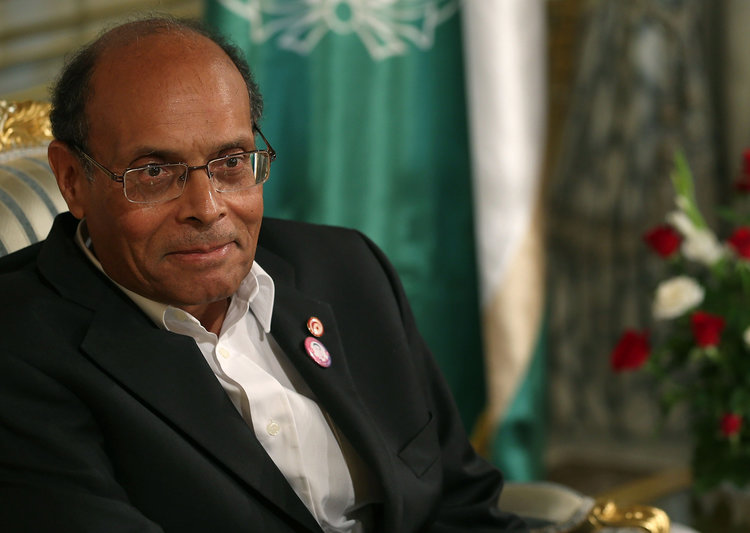Former Tunisian president Moncef Marzouqi announced Sunday establishing a new political party called “Tunisia will mobilise”, through which he will return to the political life there.
Marzouqi said, addressing his audience in the capital Tunis, that he established this party due to “catastrophic” circumstances in Tunisia one year after he lost the presidential elections in front of Beji Caid Essebsi.
“It is my duty today to return as a fighter since I cannot see Tunisia in this condition. I was sure that they [current government] will fail in two years but they failed in one,” Marzouqi said.
He continued his critique, stating that it was expected. He urged the ruling coalition, the combination of the Islamist Ennahda Movement and Nidaa Tunis, to return to the negotiation table to find better ways to address terrorism and corruption.
Marzouqi was president of Tunisia for three years after the ouster of Ben Ali’s regime in 2010.
Adel Chaouch, a key figure in Nidaa Tunis, believes Marzouqi is betting on Ennahda’s base members, who believe the leadership has made concessions and denied its Islamic principles.
“Marzouqi is betting on those who think that Ennahda did not stick to its principles and those who are disappointed at their parties,” Chaouch told Daily News Egypt. Tunisia is going through difficult conditions at the moment since many of the aims of their December revolution have not been achieved after five years, he added.
“He wants to invest in the disappointment of people since their living conditions have still not been improved; I do not think he will succeed,” he said.
The former president is using the line of fighting the symbols of the old regime, referring to Nidaa Tunis since it contains several old faces. However, old regime was not fully corrupt, some people were part of Tunisia and they served the country, Chaouch explained.
Nonetheless, the new party may benefit from punitive voting, since some Tunisians could give him votes to press on the ruling coalition to adopt more reforms, as was the case in Greece.
Abdel-Latif Al-Makki, a member of the executive office of Ennahda Movement, does not believe the new party will affect the base of the Islamist party. “The affiliation to Ennahda is based on ideology and programme, our members are loyal to those ideas,” Al-Makki told Daily News Egypt. He does not believe Marzouqi’s party will have an impact on Ennahda voters.
Tunisian political analyst Youssef Cherif believes Marzouqi is trying to get to Ennahda’s discontented grassroots bases, as well as other unrepresented categories, like some Islamists who feel that Ennahda is too lax, or that Hizbuttahrir is not realistic, young people who want a new beginning, or staunch enemies of the previous regimes.
Regarding whether Marzouqi can succeed, Cherif said it is still unclear.
“His success will depend on how bad the political and the economical situation becomes and whether there are no other alternatives emerging to compete,” Cherif told Daily News Egypt.
The strength of Ennahda and the type of narrative and strategy he will use to call upon all the fringes mentioned will also be an important factor that can determine the future of his party. “So it is too early to say whether he will succeed but he is certainly trying to do that and capitalise on those factors mentioned above,” he said.


